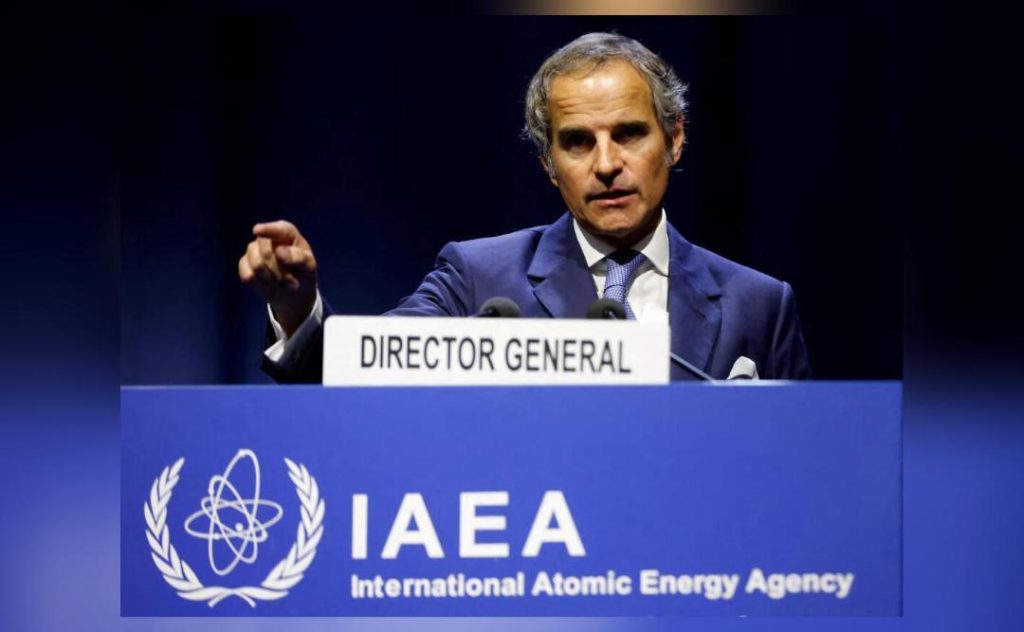
UN Watchdog Pulls Inspectors from Iran as Tehran Ends Cooperation
In a significant development, the International Atomic Energy Agency (IAEA), the UN’s nuclear watchdog, has pulled its inspectors from Iran over safety concerns. This decision comes after Tehran suspended its cooperation with the agency, citing safety concerns following a 12-day conflict with Israel. The move is seen as a major setback in the international community’s efforts to monitor Iran’s nuclear program.
According to reports, Iran refused to allow IAEA chief Rafael Grossi to enter the country, and also refused to install cameras at its nuclear sites. This has raised concerns about the country’s commitment to transparency and the possibility of hidden nuclear activities.
The IAEA’s decision to pull its inspectors from Iran is a significant development, as it marks a major setback for the agency’s efforts to monitor Iran’s nuclear program. The IAEA has been monitoring Iran’s nuclear activities since 2015, when the country agreed to the Joint Comprehensive Plan of Action (JCPOA), also known as the Iran nuclear deal.
The JCPOA was a landmark agreement between Iran and six world powers, including the United States, the United Kingdom, France, Germany, Russia, and China. The agreement aimed to limit Iran’s nuclear activities in exchange for relief from economic sanctions. However, in 2018, the United States withdrew from the agreement and reimposed sanctions on Iran, leading to a deterioration in the country’s relations with the international community.
Since then, tensions between Iran and the international community have continued to rise. In 2023, Iran launched a ballistic missile attack on a US drone, and in 2024, the country began enriching uranium to 60% purity, a level that is close to weapons-grade material.
The conflict between Iran and Israel has further escalated tensions in the region. In June 2025, the two countries engaged in a 12-day conflict, which resulted in significant damage to infrastructure and loss of life. The conflict has raised concerns about the possibility of a wider conflict in the region.
The IAEA’s decision to pull its inspectors from Iran is a reflection of the increasing tensions in the region. The agency’s inspectors have been monitoring Iran’s nuclear activities since 2015, and have reported numerous violations of the JCPOA. However, despite these violations, the IAEA has continued to certify that Iran’s nuclear activities are peaceful.
The suspension of cooperation between Iran and the IAEA is a significant development, as it raises concerns about the country’s commitment to transparency and the possibility of hidden nuclear activities. The IAEA has been working with Iran to implement the JCPOA, but the country’s refusal to cooperate has raised concerns about the effectiveness of the agreement.
The IAEA’s decision to pull its inspectors from Iran is a major setback for the agency’s efforts to monitor the country’s nuclear program. The agency’s inspectors have been working to verify Iran’s compliance with the JCPOA, but the suspension of cooperation means that the agency will no longer have access to Iran’s nuclear sites.
The decision has raised concerns about the possibility of Iran developing nuclear weapons. The IAEA has been working to verify that Iran’s nuclear activities are peaceful, but the suspension of cooperation means that the agency will no longer have access to the information it needs to make that determination.
The United States and other countries have expressed concerns about Iran’s nuclear activities, and have called on the country to cooperate with the IAEA. The European Union has also expressed concerns about the situation, and has called on Iran to respect its international obligations.
In conclusion, the IAEA’s decision to pull its inspectors from Iran is a significant development that has raised concerns about the country’s commitment to transparency and the possibility of hidden nuclear activities. The suspension of cooperation between Iran and the IAEA is a major setback for the agency’s efforts to monitor Iran’s nuclear program, and has raised concerns about the possibility of Iran developing nuclear weapons.



